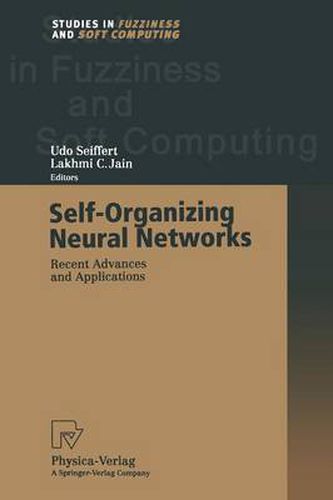Readings Newsletter
Become a Readings Member to make your shopping experience even easier.
Sign in or sign up for free!
You’re not far away from qualifying for FREE standard shipping within Australia
You’ve qualified for FREE standard shipping within Australia
The cart is loading…






This title is printed to order. This book may have been self-published. If so, we cannot guarantee the quality of the content. In the main most books will have gone through the editing process however some may not. We therefore suggest that you be aware of this before ordering this book. If in doubt check either the author or publisher’s details as we are unable to accept any returns unless they are faulty. Please contact us if you have any questions.
The Self-Organizing Map (SOM) is one of the most frequently used architectures for unsupervised artificial neural networks. Introduced by Teuvo Kohonen in the 1980s, SOMs have been developed as a very powerful method for visualization and unsupervised classification tasks by an active and innovative community of interna- tional researchers. A number of extensions and modifications have been developed during the last two decades. The reason is surely not that the original algorithm was imperfect or inad- equate. It is rather the universal applicability and easy handling of the SOM. Com- pared to many other network paradigms, only a few parameters need to be arranged and thus also for a beginner the network leads to useful and reliable results. Never- theless there is scope for improvements and sophisticated new developments as this book impressively demonstrates. The number of published applications utilizing the SOM appears to be unending. As the title of this book indicates, the reader will benefit from some of the latest the- oretical developments and will become acquainted with a number of challenging real-world applications. Our aim in producing this book has been to provide an up- to-date treatment of the field of self-organizing neural networks, which will be ac- cessible to researchers, practitioners and graduated students from diverse disciplines in academics and industry. We are very grateful to the father of the SOMs, Professor Teuvo Kohonen for sup- porting this book and contributing the first chapter.
$9.00 standard shipping within Australia
FREE standard shipping within Australia for orders over $100.00
Express & International shipping calculated at checkout
This title is printed to order. This book may have been self-published. If so, we cannot guarantee the quality of the content. In the main most books will have gone through the editing process however some may not. We therefore suggest that you be aware of this before ordering this book. If in doubt check either the author or publisher’s details as we are unable to accept any returns unless they are faulty. Please contact us if you have any questions.
The Self-Organizing Map (SOM) is one of the most frequently used architectures for unsupervised artificial neural networks. Introduced by Teuvo Kohonen in the 1980s, SOMs have been developed as a very powerful method for visualization and unsupervised classification tasks by an active and innovative community of interna- tional researchers. A number of extensions and modifications have been developed during the last two decades. The reason is surely not that the original algorithm was imperfect or inad- equate. It is rather the universal applicability and easy handling of the SOM. Com- pared to many other network paradigms, only a few parameters need to be arranged and thus also for a beginner the network leads to useful and reliable results. Never- theless there is scope for improvements and sophisticated new developments as this book impressively demonstrates. The number of published applications utilizing the SOM appears to be unending. As the title of this book indicates, the reader will benefit from some of the latest the- oretical developments and will become acquainted with a number of challenging real-world applications. Our aim in producing this book has been to provide an up- to-date treatment of the field of self-organizing neural networks, which will be ac- cessible to researchers, practitioners and graduated students from diverse disciplines in academics and industry. We are very grateful to the father of the SOMs, Professor Teuvo Kohonen for sup- porting this book and contributing the first chapter.